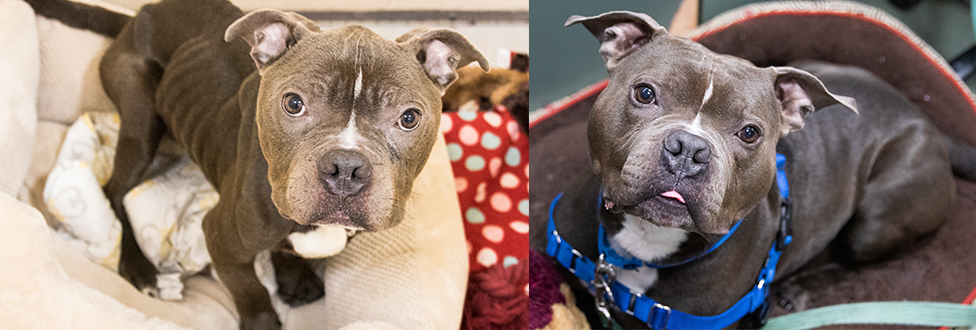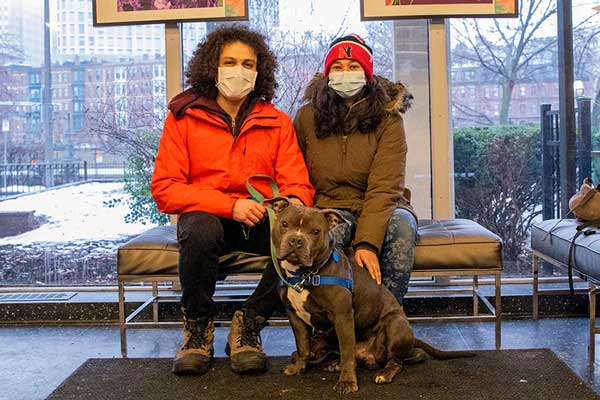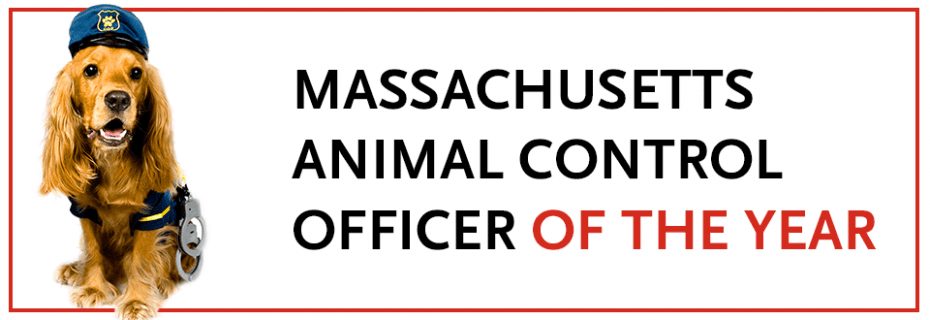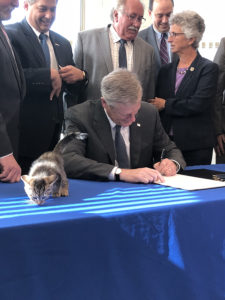What’s Happening on Beacon Hill
With the legislature returning from August recess, the Animal Rescue League of Boston’s (ARL) Advocacy Department continues to focus on ensuring animal’s voices are being heard on Beacon Hill.
Nero’s Law Advances
Nero’s Law, filed after the tragic death of Sgt. Sean Gannon and injury of his K-9 partner Nero in 2018, would insure that police dogs have access to immediate care and transport in the event of life-threatening injury.
S.1606, sponsored by Senator Mark Montigny, and H.2547 sponsored by Representative Steven Xiarhos, have moved forward in the legislative process. At the hearing back in July, ARL’s Director of Law Enforcement, Joe King, testified in support of this law. A former K9 handler with the State Police, King underscored the importance of the bond between an officer and these dogs. Thanks to the overwhelming support of the Joint Committee on Public Safety and Homeland Security, these bill received a favorable report from the committee.
Hearing on Kennel Regulations
ARL testified in support of H.2148 and S.1322, An Act protecting the health and safety of puppies and kittens in cities and towns, sponsored by Representative Linda Dean Campbell and Senator Harriette Chandler. These bills would protect animals across Massachusetts by preventing the sale of puppies and kittens under 8 weeks, prohibiting roadside sales, creating regulation for commercial boarding and training kennels, and updating kennel laws.
Currently, the only statewide standards for a kennel are that they be sanitary and humane. Looking for more information about what to look for when you board your pet? Check out our Board Safely™ campaign, which encourages pet owners to do their own research before leaving their pet in the care of a boarding kennel or daycare facility.
Hearing on Housing and Breed Concerns
Many of the animals surrendered to ARL’s shelters are surrendered due to housing issues. This session, ARL worked with Representative David Rogers and Senator Anne Gobi to file H.1437 and S.885, An Act to maintain stable housing for families with pets in an economic crisis and beyond.
ARL testified in support of legislation that would prohibit insurance companies from refusing to cover, canceling, or charging more for homeowners or renters insurance based on the breed, size, weight, or physical appearance of a dog. Data shows that breed is not a reliable indicator of dog bites, and further, that visual identification is often inaccurate in determining breed.
Included in the bill this session were some new provisions to help keep families and pets together during the COVID-19 Pandemic. Although the State of Emergency has ended, ARL will continue to advocate for protections in housing.
Have questions on ARL’s advocacy efforts or want to get involved? Please email advocacy@arlboston.org











